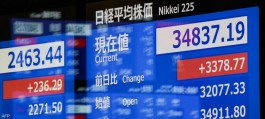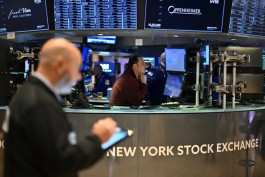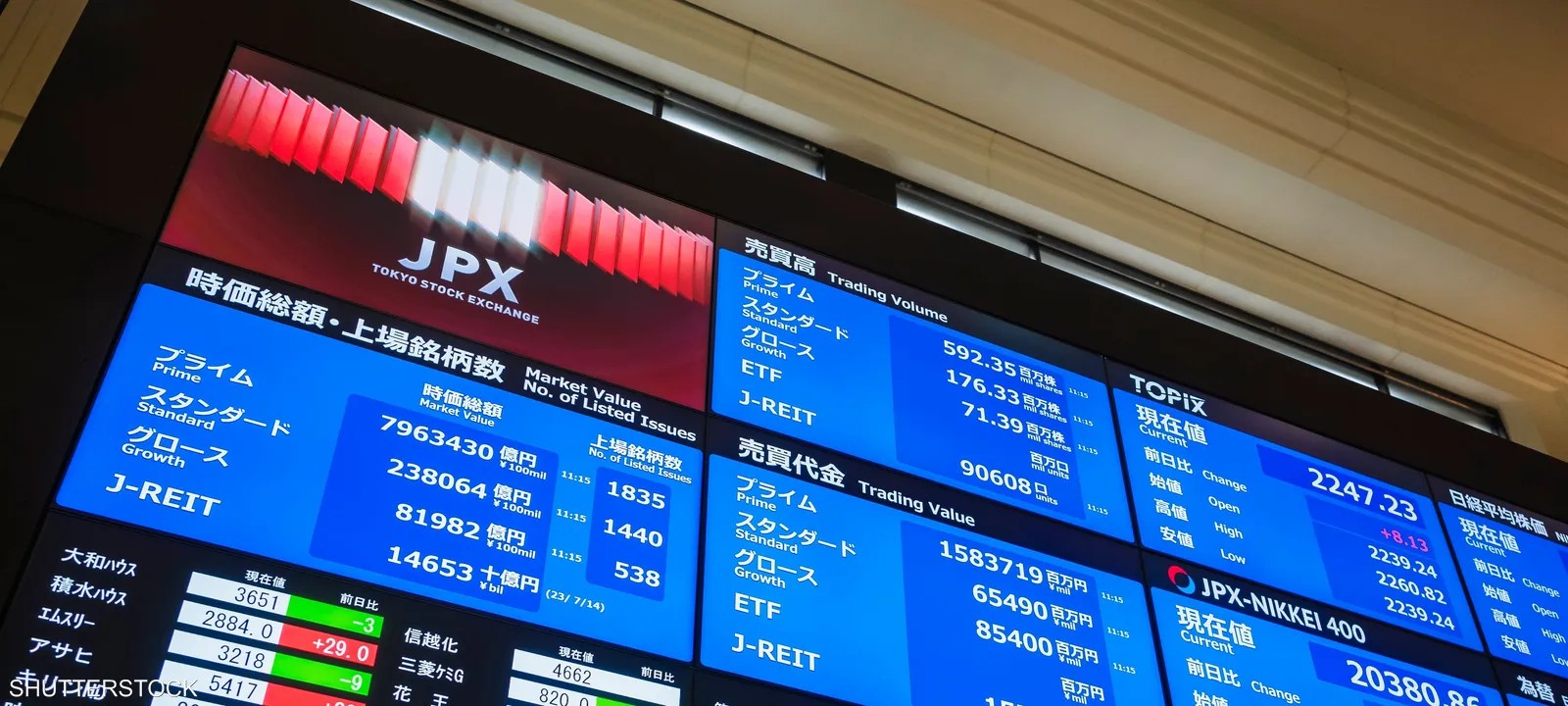Asian stocks fell after a volatile session on Wall Street that saw widespread losses in safe-haven assets and equities.
MSCI's regional index of Asian shares fell further from its record closing level reached earlier this week, with Japanese stocks leading the decline.
The Nasdaq 100 lost 1% after weak forecasts from Texas Instruments and a 10% drop in Netflix. In extended trading, Tesla shares fell after earnings missed estimates despite higher sales.
Renewed trade tensions increase market anxiety
Markets grew increasingly concerned after the Trump administration said it was considering restrictions on software exports to China, sparking renewed trade tensions.
In the United States, the assets favored by individual momentum traders suffered the greatest losses, including precious metals, cryptocurrencies, and artificial intelligence companies.
Delane Wu, a strategist at Pepperstone Group Ltd., said that the trades that were driving momentum across asset classes are now starting to unwind. The biggest risk comes from earnings season; strong results can bolster sentiment, but any disappointments, particularly from growth or technology stocks, could exacerbate the current decline.
Gold declines and oil jumps
Gold fell for a third day, heading towards $4,000 an ounce, while oil prices jumped more than 2% after the United States announced sanctions on Russia's largest oil producers, in its latest attempt to pressure President Vladimir Putin to negotiate an end to the war in Ukraine.
In currency markets, the yen fell against the dollar for the fifth consecutive session, while the yield on 10-year US Treasury bonds stabilized after falling one basis point to 3.95% on Wednesday. A $13 billion 20-year bond offering was met with strong demand, while the dollar index remained relatively stable.
Stock indexes in Hong Kong and mainland China registered minor declines. Chinese officials concluded their fourth meeting in Beijing, with a statement expected later today.
Anticipating the results of trade talks
US Treasury Secretary Scott Besant is scheduled to meet with his Chinese counterparts over the weekend, ahead of upcoming talks between Trump and Chinese President Xi Jinping.
Japanese Prime Minister approves measures to support the economy
In Japan, new Prime Minister Sanae Takaichi ordered a new package of economic measures to help households and businesses cope with persistent inflation.
Shares of Disco Corp. and Tokyo Electron Ltd. fell more than 4%, leading losses on the Nikkei 225.
In South Korea, the Bank of Korea kept its key interest rate unchanged to avoid sparking a housing market recovery.
American companies exceed expectations
At a time when the rally in US stocks has slowed, the percentage of companies that beat earnings expectations this quarter is the highest since 2021. While most S&P 500 companies typically beat expectations, this season is special because analysts have raised their forecasts.
Markets are cautious ahead of Friday's release of US Consumer Price Index data, which was postponed due to the federal government shutdown.
Meanwhile, the Federal Reserve has stopped receiving private sector employment data from an independent provider, further exacerbating the lack of timely information for policymakers during the ongoing government shutdown.
Payroll services firm ADP Research stopped providing the central bank with this data, which covers about 20% of the US private sector workforce, after a speech by Fed member Christopher Waller in late August in which he referred to the statistics.






































